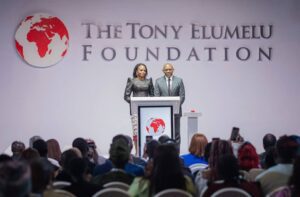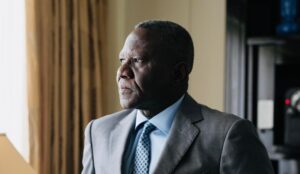
Source: Ghanaija
Once upon a time in the vibrant and diverse continent of Africa, lived families who recognized the importance of physical activity for their children. Each family, from different regions, found unique and inspiring ways to motivate their young ones to embrace exercise.
The Adventure in Kenya
In the bustling city of Nairobi, Kenya, lived a young boy named Kofi. His father, Mr. Mwangi, was a marathon runner who often told stories of his adventures running through the savannahs. Kofi admired his father but preferred playing video games to running. One day, Mr. Mwangi decided to combine Kofi’s love for technology with his need for exercise.
“Kofi,” Mr. Mwangi said one morning, “how about we create a running game? You can design levels, and we will run them in real life.”
Intrigued, Kofi agreed. They spent hours designing courses around their neighborhood. The next day, armed with their new game, they set out to conquer the levels. Kofi’s excitement grew with each completed level, and soon, running became an adventure he looked forward to daily.
The Dance of Ghana
In the coastal town of Cape Coast, Ghana, lived a spirited girl named Ama. Ama’s mother, Yaa, was a traditional dancer who performed at local festivals. Ama loved watching her mother dance but was shy about joining in.
Yaa noticed her daughter’s interest and devised a plan. “Ama, how about you help me choreograph a new dance for the festival?” she suggested.
Ama’s eyes lit up. Together, they created a routine that mixed traditional and modern dance moves. Practicing for the performance became their daily exercise. The joy of dancing with her mother motivated Ama, and she gained confidence and fitness along the way.
The Soccer Dreams of Nigeria
In Lagos, Nigeria, lived a boy named Tunde, who dreamt of becoming a soccer star. His father, Mr. Adewale, was a former soccer player who understood the discipline and hard work required to succeed. However, Tunde preferred watching matches on TV to practicing.
One day, Mr. Adewale took Tunde to a local soccer academy. “Tunde, how about we sign you up for training here?” he asked.
Tunde hesitated at first, but seeing other kids his age playing enthusiastically, he agreed. The academy’s coaches and the camaraderie with other young players made training enjoyable. Tunde’s passion for soccer grew, and he eagerly anticipated each training session, motivated by the dream of one day playing professionally.
The Cycling Journey in South Africa
In the scenic town of Stellenbosch, South Africa, lived a girl named Naledi. Her parents, Mr. and Mrs. Nkosi, were avid cyclists who often went on long rides through the vineyards and mountains. Naledi, however, preferred reading books in the comfort of her home.
Recognizing her love for stories, Mrs. Nkosi came up with an idea. “Naledi, how about we go on a cycling adventure and you write about our journey?”
Naledi loved the idea. They planned a route and set off on their bikes, exploring new places each day. Naledi wrote about their experiences in a journal, capturing the beauty of nature and the joy of cycling. The promise of new adventures and stories motivated her to cycle regularly.
The Cultural Games of Ethiopia
In the highlands of Ethiopia, in the town of Lalibela, lived a boy named Mesfin. Mesfin’s grandparents often told him stories of traditional Ethiopian games they played as children. Mesfin was fascinated but spent most of his time indoors with his gadgets.
One evening, his grandfather, Abebe, proposed an idea. “Mesfin, how about we learn and play these traditional games together?”
Curious, Mesfin agreed. They played games like Genna (a traditional field hockey game) and Gebeta (a mancala game). These games required physical activity and strategic thinking. Mesfin enjoyed the challenge and physical exertion, and the bond with his grandfather grew stronger.
The Swimming Fun in Senegal
In the coastal city of Dakar, Senegal, lived a girl named Fatou. Her family lived near the beach, but Fatou rarely swam. Her mother, Awa, who was a skilled swimmer, wanted Fatou to enjoy the ocean’s beauty and stay fit.
Awa decided to make swimming lessons fun. “Fatou, how about we collect seashells while we swim?” she suggested.
Fatou loved collecting shells, so she agreed. Each swim became a treasure hunt, and Fatou grew stronger and more confident in the water. The combination of exercise and adventure made swimming a favorite activity.
The Farming Experience in Tanzania
In the rural village of Karatu, Tanzania, lived a boy named Juma. His family owned a small farm where they grew various crops. Juma’s father, Mr. Mollel, wanted Juma to help on the farm, believing it would keep him active and teach him valuable skills. However, Juma found farming chores tedious.
One day, Mr. Mollel proposed a competition. “Juma, how about we see who can plant the most seeds in an hour?”
Juma’s competitive spirit was piqued, and he accepted the challenge. The competition turned farm work into a game, and Juma enjoyed the physical activity. He became more involved in farming, realizing the importance of hard work and staying fit.
The Hiking Trails of Rwanda
In the beautiful hills of Kigali, Rwanda, lived a girl named Akira. Her family often went hiking, but Akira preferred staying indoors, engrossed in her art projects. Her father, Mr. Mukasa, knew she needed more physical activity.
Mr. Mukasa came up with an idea. “Akira, how about we combine hiking with sketching? We can explore new trails and you can draw the landscapes.”
Akira loved drawing, so she agreed. They hiked different trails, and Akira sketched the breathtaking views they encountered. The combination of hiking and art made the experience enjoyable, and Akira looked forward to their adventures.
The Martial Arts of Botswana
In the town of Maun, Botswana, lived a boy named Thabo. His parents, Mr. and Mrs. Kgosi, were martial arts enthusiasts who believed in the discipline and fitness it provided. Thabo, however, was more interested in playing video games.
One evening, Mr. Kgosi proposed a deal. “Thabo, how about you join us for martial arts training, and in return, I’ll help you design a martial arts video game?”
Thabo was intrigued and agreed. Training sessions became family time, and Thabo grew to appreciate the physical and mental benefits of martial arts. The promise of creating his own game kept him motivated.
The Conclusion
Across Africa, these families found unique ways to motivate their children to exercise. From creating games and combining interests to exploring nature and learning new skills, they discovered that making physical activity fun and engaging was key. The children, inspired by their families and the adventures they shared, embraced exercise as an integral part of their lives, leading to healthier, happier futures.








